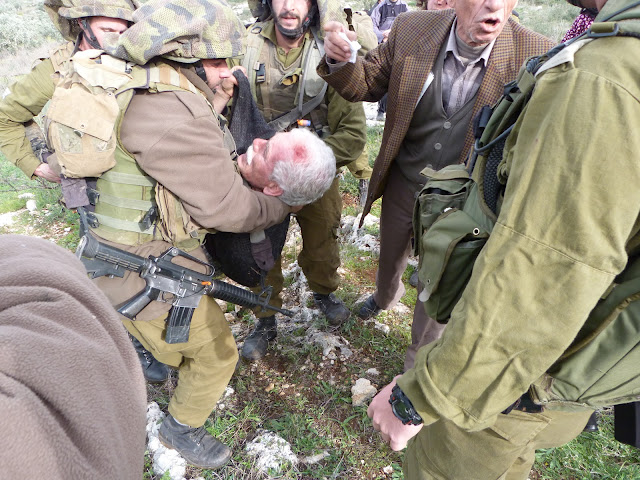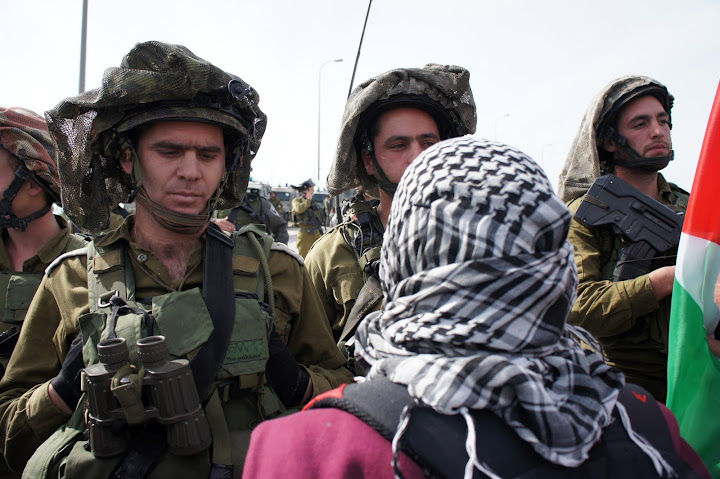Tag: Settlers
-
In Photos: Settlers and Israeli military violently steal land in Kufr Qaddoum
6 February 2012 | International Solidarity Movement, West Bank On February 5 the residents of Kufr Qaddoum noticed several soldiers and illegal settlers on their lands who were plotting how to illegally seize land from the village. Upon arrival, International Solidarity Movement received word that indeed the colonizers were planning an action to seize land…
-
Celebrating heroes and olives: Qaryut begins to dismantle roadblock
by Aaron 5 February 2012 | International Solidarity Movement, West Bank Hundreds of peaceful demonstrators confronted heavily armed Israeli soldiers this Friday, February 3rd, at a new protest in the village of Qaryut, planting nearly one hundred trees and partially demolishing the roadblock that has obstructed access to the highway since the First Intifada. Although…



